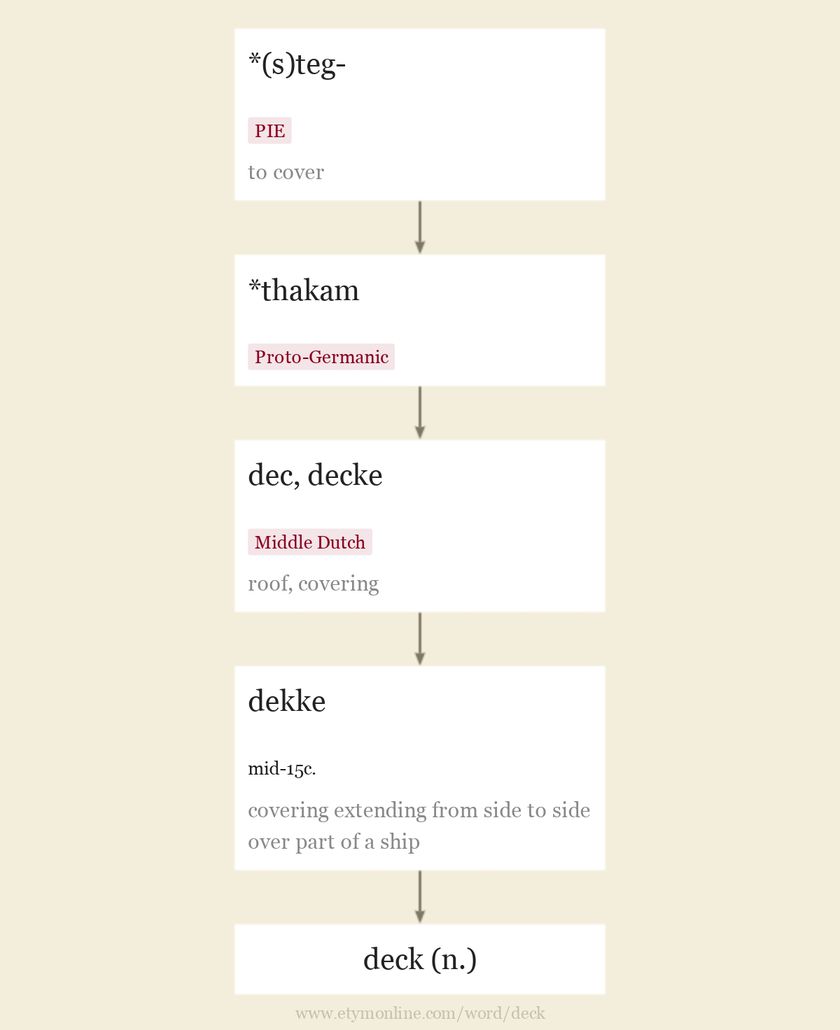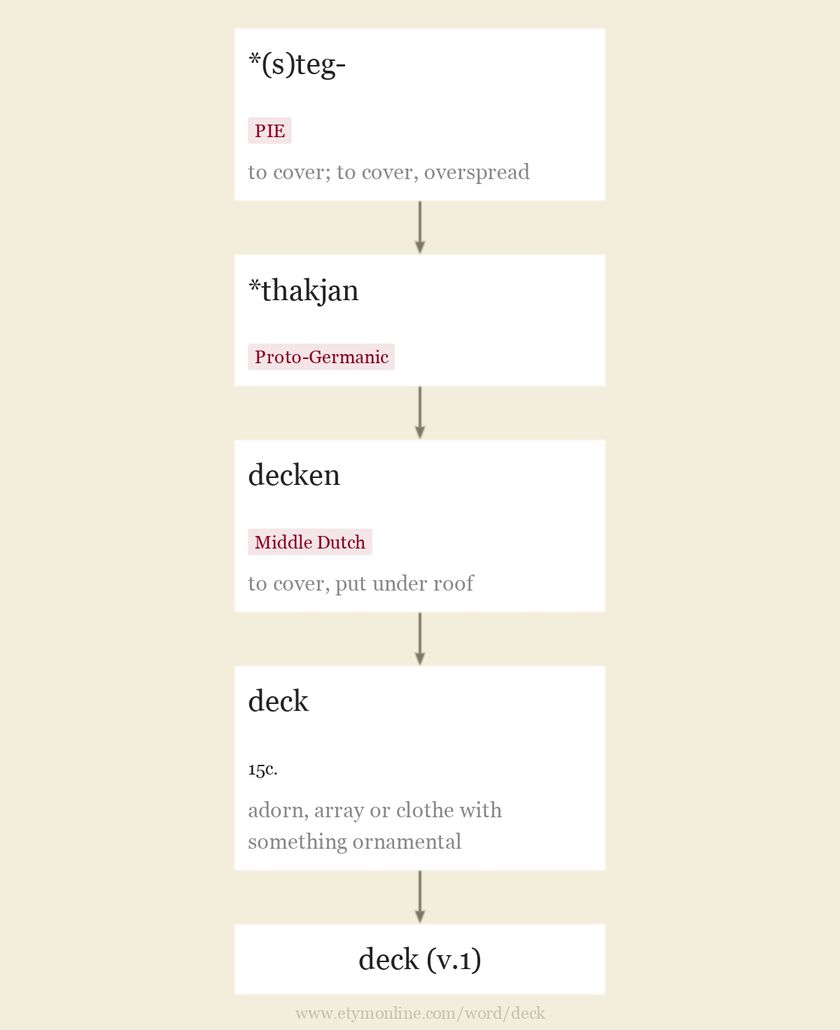| 词源 |
deck n.mid-15c., dekke, "covering extending from side to side over part of a ship," from a nautical use of Middle Dutch dec, decke "roof, covering," from Proto-Germanic *thakam (source also of thatch (n.)), from PIE root *(s)teg- "to cover." Sense extended early in English from "covering" to "platform of a ship." Meaning "pack of cards necessary to play a game" is from 1590s, perhaps because they were stacked like decks of a ship. Tape-deck (1949) is in reference to the flat surface of old reel-to-reel tape recorders. Deck-chair (1844) so called because they were used on ocean liners. On deck (by 1740) was in nautical use especially "ready for action or duty;" extended sense in baseball, of a batter waiting a turn at the plate, is by 1867. To clear the deck (1852) is to prepare a ship for action; it is perhaps a translation of French débarasser le pont. deck v.1 "adorn, array or clothe with something ornamental" (as in deck the halls), early 15c., from Middle Dutch decken "to cover, put under roof," a nautical word, from Proto-Germanic *thakjan (source also of Old Frisian thekka, Old High German decchan, German decken), from PIE root *(s)teg- "to cover." Meaning "to cover, overspread" is from 1510s in English. Replaced Middle English thecchen, from Old English eccan(see thatch (v.), which is a doublet).Related: Decked; decking. deck v.2 "to knock down," by 1955, probably from deck (n.) on the notion of laying someone out on a ship's deck. Compare floor (v.) "to knock down." Related: Decked; decking. updated on October 13, 2021 |

